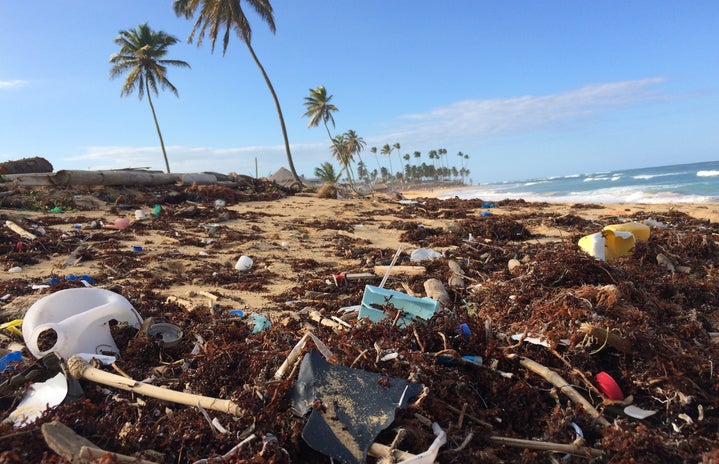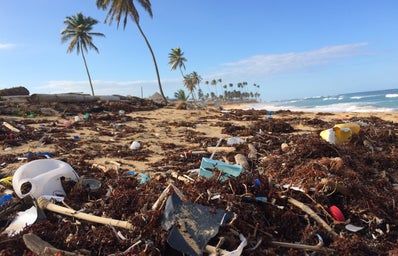Ocean pollution has been a problem since the 1950s when the world transitioned from glass to plastic. The planet’s oceans have increasingly been polluted with tens of thousands pounds of waste; which not only threaten our environment, but the animals that inhabit them. Polluting our oceans has caused a large increase in toxic chemical production, waste ingestion, and contamination of the water we drink.
Most people seem to have a mindset where they need to see it to believe it. However, the increase in chemical production has skyrocketed in the last decade. One of the causes of this increase in toxic chemicals is land runoff. Runoff occurs when farming takes place close to the ocean and products like fertilizers, animal waste, and pesticides are washed into the ocean due to rain or flooding. It is estimated that about 36% of this runoff is in the ocean right now. Furthermore, runoff can erode and damage natural habitats for aquatic animals and in turn, end up being ingested by humans. Also, by ingesting or being exposed to toxic chemicals, this can cause hormonal problems, reproductive problems, nervous system damage, kidney damage, Parkinson’s Disease, Alzheimer’s, heart disease, stomach aches, and rashes. Thus, it is critical that we take action in maintaining the ocean considering how toxic oceans can harm the public.
Moreover, since most types of waste will stay in the ocean for hundreds of years, we are even more likely to ingest it. For instance, if someone loves to eat seafood, animals like fish, tend to eat microplastics, mistaking them for algae or smaller fish. Once they are fished and sold at a market or grocery store, humans end up eating the same plastic that they pollute the Earth with. In fact, it is predicted that about one credit card is ingested weekly by humans. Clearly, what comes around goes around in our diets.
Although most of the water we drink comes from fresh bodies of water, desalination is still utilized to create drinking water from ocean water. Now, the issue with this is that since the ocean water is becoming more and more polluted, we are more likely to cause our own health problems from drinking ocean water, even if it is cleaned and desalinated.
Overall, as a college student, I feel like it has become an even greater responsibility to properly dispose of waste, recycle, and inform other students about ocean pollution. Not only that, but I feel like the younger generation is becoming more and more aware of climate change and pollution. By being more informed on this topic, we have the power to vote for people that will help aid the Earth.



